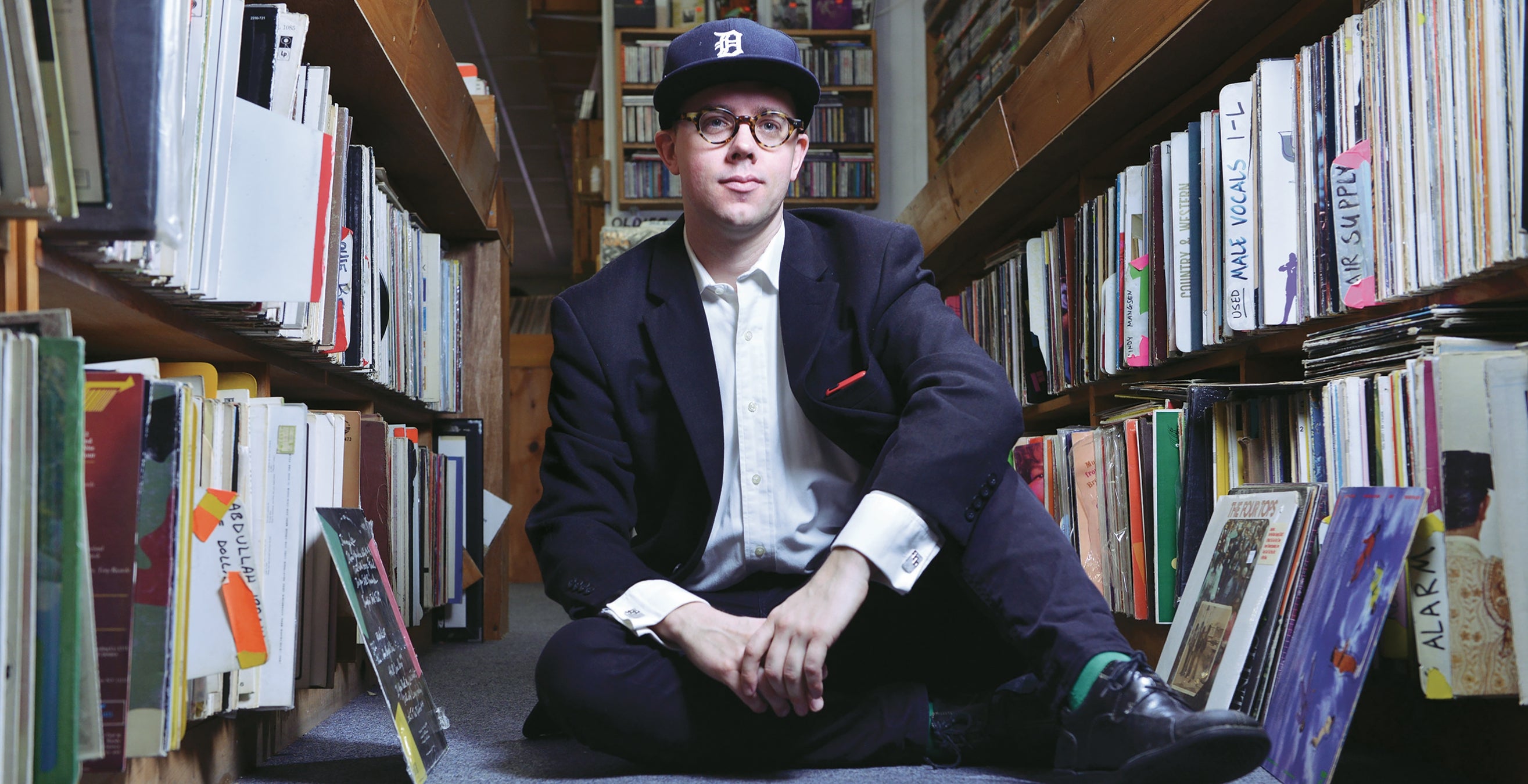It’s 2012, and a cluster of music lovers assembles in front of the Blue Bird Inn, a now-defunct but once iconic Detroit jazz club. If it were 1957, the doors would be open for live bebop almost every night. Audiences would have come to hear legendary musicians like Miles Davis and John Coltrane. But now, decades later, the building is vacant and crumbling.
This small gathering is the first official meeting of Detroit Sound Conservancy (detroitsound.org). The members are on a mission to preserve and advocate for Detroit’s musical heritage, and they are determined to save the Blue Bird’s famous stage, which influenced generations of musicians.
Recognizing such legacies highlights “sonic ecology,” says Sound Conservancy founder and Pitt alumnus Carleton Gholz. Music is linked to larger social and political factors, so the history of a performance venue like the Blue Bird is also the history of Detroit and its people. “We have to be concerned about this interconnectedness,” said Gholz, because the loss of one piece of the past can lead to the erosion of a much bigger story.
It took years of hard work, but Gholz and his team have saved and collected hundreds of relics—records, reel-to-reel tapes, signage, and, with help from local archaeologists, even the Blue Bird’s stage. After a careful rebuilding, the stage now travels as an ambassador for the city’s musical past. It was displayed in March at an international design exhibit in France before returning to Michigan to appear at the Detroit Public Library and the College for Creative Studies.
More recently, Gholz and his colleagues helped acquire a historic designation for United Sound Systems. The legendary recording studio produced tracks from artists including John Lee Hooker, Jackie Wilson, and Dizzy Gillespie. A plaque detailing the site’s history, written by Gholz, now stands outside the building. Meanwhile, the nonprofit continues its work, recording oral histories, archiving artifacts, and celebrating Detroit’s jazz, blues, Motown, rock, and techno legacies.
Gholz’s passion for the Motor City music scene is rooted in his childhood growing up near Detroit and later working in the city as a high school social studies teacher and a curious journalist for the alt-weekly, Metro Times.
He found that embedded in the city’s musical environments were tales of community, creation, rebellion, and change. Gholz wanted to discover more, and learn how to best tell and preserve the area’s stories.
So, he left Michigan to earn a PhD in communication at the University of Pittsburgh. In between writing his dissertation on the rise of Detroit’s DJ culture, he hosted a show called “Rust Belt Soul” on WPTS, the campus radio station. He even repaired some of the station’s old vinyl and re-cataloged their seven-inch record collection.
It was good practice for Gholz (A&S ’11G), who is now collecting, preserving, and cataloging recordings from across Detroit’s history. He hopes to establish a permanent home for the collection so that it can be shared with the public. The nonprofit leader knows the value of saving history, even if it’s one song—or story—at a time.
Opening image: Carleton Gholz
This article appeared in the Winter 2018 issue of Pitt Magazine.





